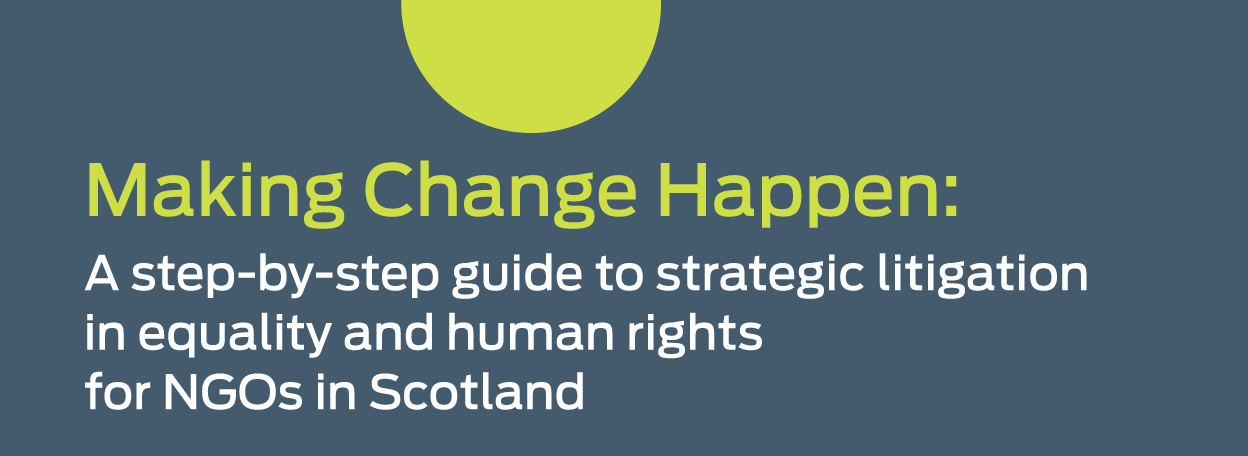Step five: Work with others
Experience and research shows that strategic litigation is most effective when pursued collaboratively. The strategic impact is greater with the support and input of various partners, and when it is communicated well to stakeholders.
Partner civil society organisations can bring:
You can find useful contacts to consider approaching in the Resources section.
Partner civil society organisations can bring:
- Knowledge of, and contact with, individuals who could bring a judicial review petition on the strategic issue
- Additional knowledge or expertise on the strategic issue to enhance initial consideration
- A Public Interest Intervention in the case to strengthen the court’s consideration
- Help with communicating the case outcome through their social media, events and networks
- Resource, whether finance or particular support that they can offer the individual petitioner
- Share the risk – strategic litigation can bring reputational risk for an organisation but working in partnership lessens the risk to any one organisation. It is beneficial to build good contacts with legal networks or professionals who can help to highlight potential cases and help you to consider your organisation’s strategic approach to litigation.
You can find useful contacts to consider approaching in the Resources section.

